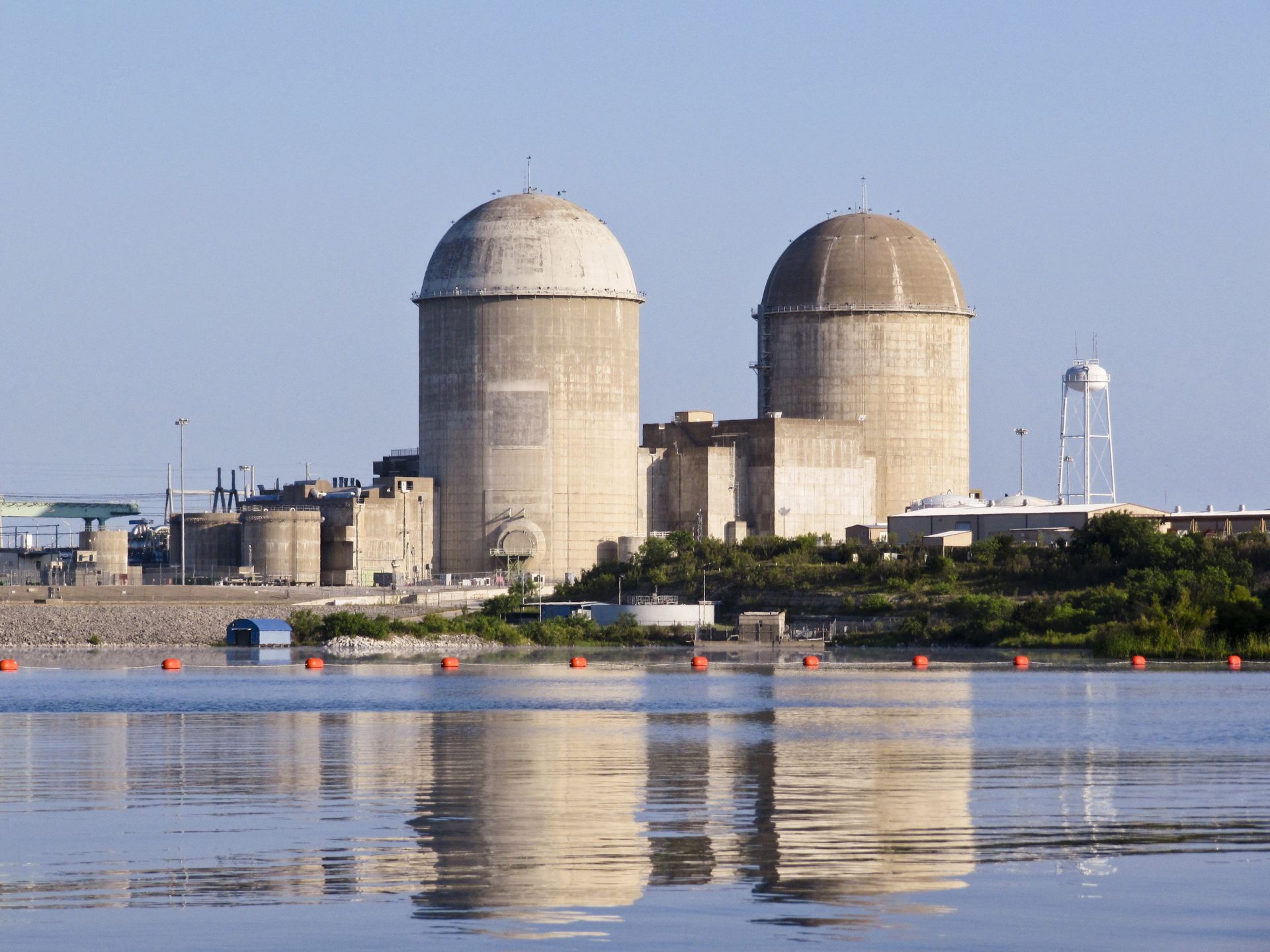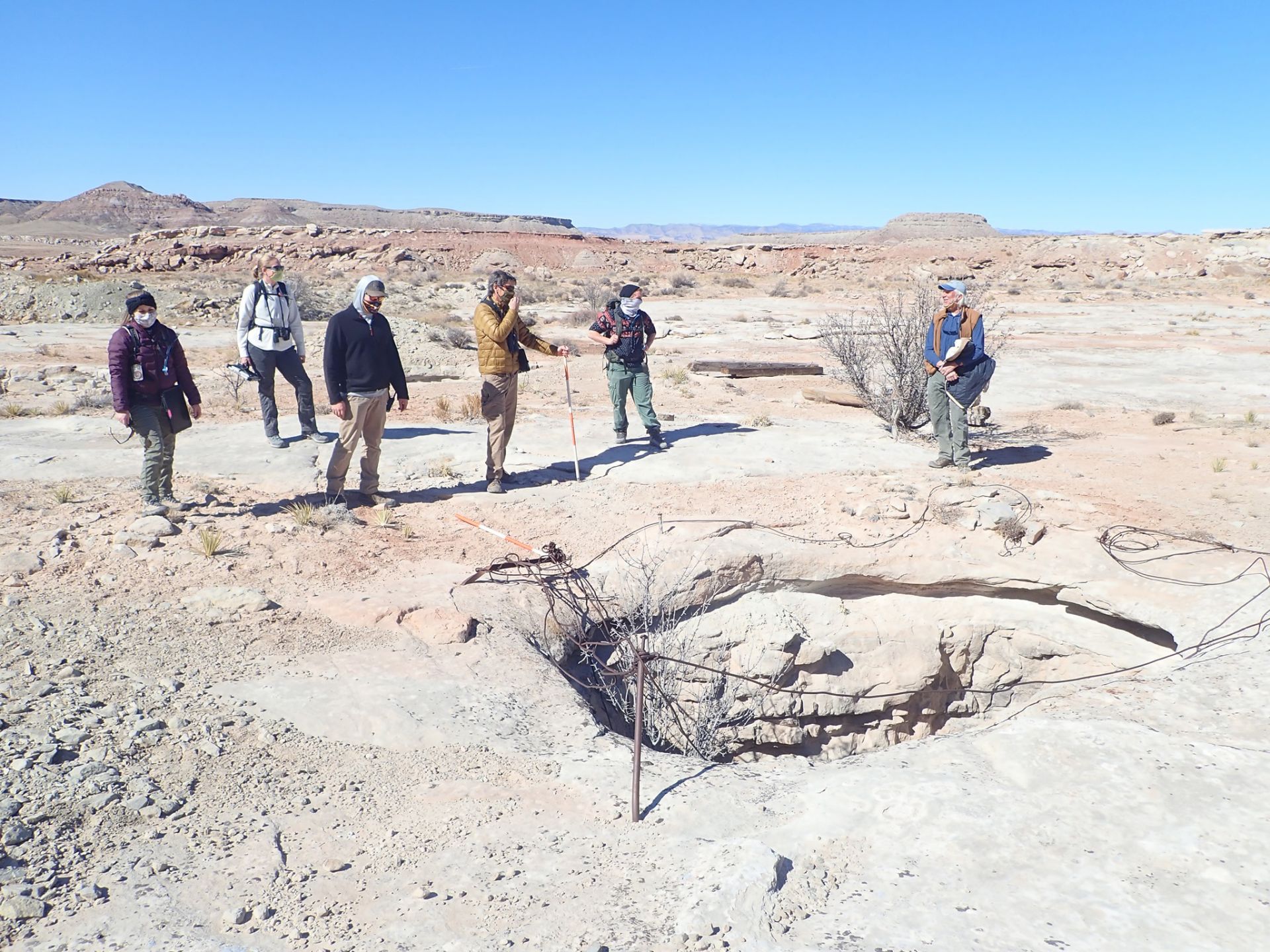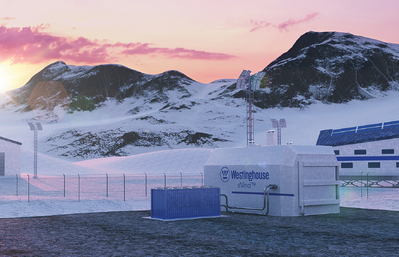Aircraft line the runway at Eielson AFB in December 2020. (Photo: U.S. Air Force/Senior Airman Keith Holcomb)
The Department of the Air Force and the Defense Logistics Agency–Energy have released a request for proposals (RFP) for the construction and operation of a microreactor in central Alaska. The Department of Defense wants a 20-year supply of electricity and steam from a 1–5-MW microreactor, but the Eielson Air Force Base (AFB) Microreactor Pilot Program will go beyond a simple power purchase agreement and put the reactor through its paces with tests, at least annually, of the reactor’s walk-away safety and black-start capabilities. The final RFP is available at sam.gov.
Finland’s Olkiluoto-3. (Photo: TVO)
The Unit 3 EPR at Finland’s Olkiluoto nuclear power plant has reached its full capacity of approximately 1,600 MWe for the first time, plant owner and operator Teollisuuden Voima Oyj has announced. Olkiluoto-3 is now the most powerful reactor in Europe and the third most powerful globally, according to TVO. (Currently, the world champions in that department are China’s 1,660-MWe Taishan-1 and -2, also EPRs.)
Luminant’s two-unit Comanche Peak plant in Glen Rose, Texas. (Photo: Vistra Corporation)
Vistra Corporation announced yesterday that it is seeking 20-year life extensions for its Comanche Peak reactors and has submitted an application for license renewals to the Nuclear Regulatory Commission.
Operated by Vistra subsidiary Luminant and located in Glen Rose, Texas, Comanche Peak is home to two Westinghouse-supplied pressurized water reactors. The 1,218-MWe Unit 1 began commercial operation in August 1990, with the 1,207-MWe Unit 2 joining in August 1993. The original 40-year licenses for Units 1 and 2 expire in February 2030 and February 2033, respectively.
The Savannah River Site (Photo: DOE)
The Department of Energy has extended Savannah River Nuclear Solutions’ (SRNS) management and operating contract at the Savannah River Site (SRS) in South Carolina for up to an additional five years. The announcement was made recently 29 by engineering company Fluor, which leads the SRNS joint venture, along with Newport News Nuclear and Honeywell.
An artist’s rendering of Hermes. (Image: Kairos Power)
The Nuclear Regulatory Commission issued a draft environmental impact statement (EIS) recently on Kairos Power’s application for a permit to construct Hermes, a 35-MW nonpower version of the company’s fluoride salt–cooled reactor design (KP-FHR), at the East Tennessee Technology Park in Oak Ridge, Tenn.
Canadian Nuclear Laboratories (Photo: AECL)
Atomic Energy of Canada Limited (AECL) has published a request for expressions of interest to manage and operate Canadian Nuclear Laboratories (CNL). The request is available on the MERX website.
According to AECL, the objective of the procurement and the resulting contract is to contain or reduce costs and risks for Canadian taxpayers while leveraging CNL’s capabilities and resources for Canadians.
Expressions of interest must be submitted via MERX on or before October 26, 2022.
DRUM team members at the Telluride 18 mine in the Yellow Cat area of southwest Colorado.
Based on a review of U.S. Atomic Energy Commission (AEC) records and available data from numerous agencies, there are an estimated 4,225 mines across the country that provided uranium ore to the U.S. government for defense-related purposes between 1947 and 1970. To aid in the cleanup of these legacy uranium mines and establish a record of their locations and current conditions, the Defense-Related Uranium Mines (DRUM) program was established within the Department of Energy’s Office of Legacy Management (LM).
Germany’s Isar nuclear plant, located in Essenbach, Bavaria. (Photo: Elmschrat/WikiCommons)
With a reluctant bow to the reality of the energy crisis gripping Europe, the German government this week took a slight step back from its antinuclear power stance, forging an agreement with the operators of the Isar and Neckarwestheim plants to keep those facilities in “operational reserve” this winter should they be needed to ensure the country’s energy security.
From left: Romanian energy minister Virgil Popescu; E-Infra CEO Teofil Mureșan; Nuclearelectrica board chairman Teodor Chirica; and U.S. undersecretary for economic development, energy, and environment Jose Fernandez. (Photo: Nuclearelectrica)
Energy firms Nuclearelectrica and Nova Power & Gas have launched a joint venture, RoPower Nuclear, for the development of small modular reactors in Romania, with SMR technology provided by NuScale Power, of Portland, Ore.
Largely state-owned, Nuclearelectrica operates Romania’s sole nuclear power facility, the two-unit Cernavoda plant, while Nova Power & Gas, a subsidiary of the privately held E-Infra Group, is a supplier and distributor of electricity and natural gas in Romania. The two firms own equal shares of RoPower.
ANS Standards Committee publishes new standard for light water reactor risk-informed, performance-based design
The new standard ANSI/ANS-30.3-2022, Light Water Reactor Risk-Informed, Performance-Based Design, has just been issued by the American Nuclear Society. Approved by the American National Standards Institute (ANSI) on July 21, 2022, the standard provides requirements for the incorporation of risk-informed, performance-based (RIPB) principles and methods into the nuclear safety design of commercial light water reactors. The process described in this standard establishes a minimum set of process requirements the designer must follow in order to meet the intent of this standard and appropriately combine deterministic, probabilistic, and performance-based methods during design development.
NNSA administrator Jill Hruby (left) holds up the signed MOU on HEU conversion during the agency’s virtual meeting with Japan’s MEXT. (Credit: NNSA)
The Department of Energy’s National Nuclear Security Administration (NNSA) has signed a memorandum of understanding with Japan’s Ministry of Education, Culture, Sports, Science, and Technology (MEXT). The MOU describes their commitment to convert the Kindai University Teaching and Research Reactor (UTR-KINKI) from high-enriched uranium fuel to low-enriched uranium fuel. The nuclear nonproliferation–related agreement also calls for the secure transport of all the HEU to the United States for either downblending to LEU or disposition.


















